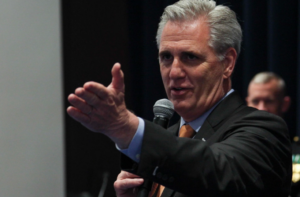
The House has removed $300 million in Ukraine aid from its fiscal year 2024 defense appropriations legislation and is set to consider the funding as a separate bill. The move is a bid from Speaker Kevin McCarthy (R-Calif.) to shore up enough Republican support to pass the House’s $826.5 billion defense spending bill, with a group of conservative members having signaled their opposition to continued Ukraine aid. “It is never a bad thing to have all members of the House…

 By
By 











